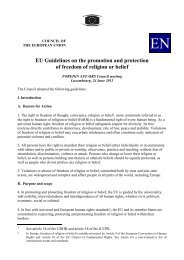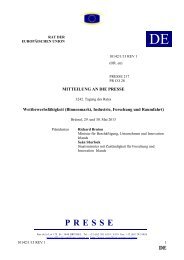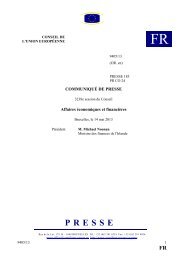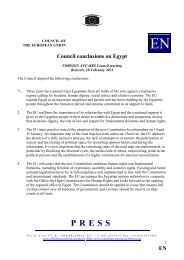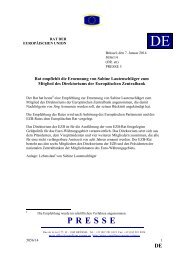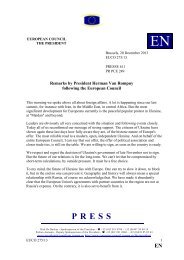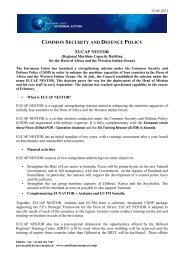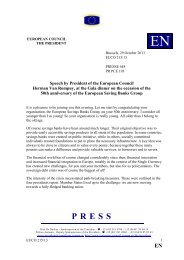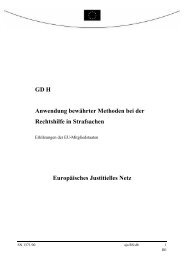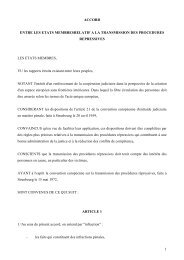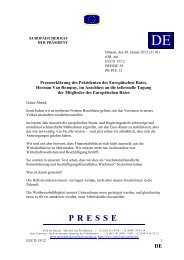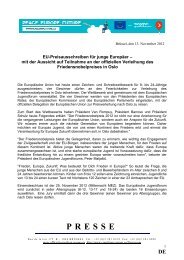14508/09 ADD 1 PL/vk 1 DG G COUNCIL OF THE ... - Europa
14508/09 ADD 1 PL/vk 1 DG G COUNCIL OF THE ... - Europa
14508/09 ADD 1 PL/vk 1 DG G COUNCIL OF THE ... - Europa
You also want an ePaper? Increase the reach of your titles
YUMPU automatically turns print PDFs into web optimized ePapers that Google loves.
Key findings from the second reporting cycle indicated that gender considerations featured more<br />
than in the past but could be mainstreamed more consistently. In particular:<br />
• for social inclusion, a number of measures tackled gender-specific problems (such as labour<br />
market integration, child poverty, lone parenthood, and flexible forms of work) which were<br />
likely to benefit women, but a general tendency was that these problems had not always<br />
been analysed from a gender perspective, nor were the measures necessarily<br />
• aimed at increasing gender equality. Nevertheless, almost half of the Member States<br />
acknowledged the specific problems faced by women, and proposed measures aimed at<br />
directly helping them. Some have also designed specific measures to help immigrant women<br />
and one Member State proposed improving the specific situation of Roma women.<br />
• for pensions, many Member States reported significant wage gaps between employed men<br />
and women. The Joint Report underlined that though substantially reduced, the resulting<br />
gender gaps in retirement income are set to persist. It underlined that a proposed solution to<br />
the problem was the equalisation of the pension eligibility ages for men and women, but that<br />
constant efforts would be needed to achieve gender equality on the labour market and in the<br />
distribution of care burdens. It would also be important to monitor the effects of policies<br />
whereby replacement incomes and pension entitlements were given for care-related<br />
absences from the labour market in order to prevent such forms of protection from becoming<br />
new dependency traps.<br />
• for healthcare and long-term care, gender mainstreaming was applied only in rare cases.<br />
In addition, several activities/initiatives of the Commission in the social inclusion/social protection<br />
domain promoted gender equality in 2005-20<strong>09</strong>. These include the following: peer review seminars<br />
on minimum incomes and older women's poverty 13 and on the return of women to the labour<br />
market; a manual on gender mainstreaming employment, social inclusion and social protection<br />
13 http://ec.europa.eu/employment_social/spsi/docs/spsi_gpa/spsi_gpa_7_minimum_incomes.pdf<br />
<strong>14508</strong>/<strong>09</strong> <strong>ADD</strong> 1 <strong>PL</strong>/<strong>vk</strong> 21<br />
ANNEX <strong>DG</strong> G EN



